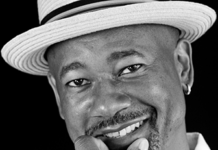 The University of Kentucky has announced the hiring of a new group of faculty members associated with the African American and Africana studies interdisciplinary program in the College of Arts & Sciences.
The University of Kentucky has announced the hiring of a new group of faculty members associated with the African American and Africana studies interdisciplinary program in the College of Arts & Sciences.
“It is important to hire Black faculty in these areas and all areas because their individual and collective research expertise is essential to the mission of the university,” said Damaris B. Hill, interim director of the African American and Africana program. “This kind of research is essential because we, at the University of Kentucky and beyond in our global community, cannot understand where humanity has been and where we are going without Black studies.”
The new Black faculty members who are affiliated with the African American and Africana Studies are:
 Jazmine Wells is a new assistant professor in the department of writing, rhetoric, and digital studies. Her research interests include cultural literacies, women’s rhetorics, maternal incarceration, and race. Dr. Wells is a graduate of Colorado State Univerity-Pueblo, where she majored in English. She holds a master’s degree and a Ph.D. in rhetoric and writing from the University of Texas.
Jazmine Wells is a new assistant professor in the department of writing, rhetoric, and digital studies. Her research interests include cultural literacies, women’s rhetorics, maternal incarceration, and race. Dr. Wells is a graduate of Colorado State Univerity-Pueblo, where she majored in English. She holds a master’s degree and a Ph.D. in rhetoric and writing from the University of Texas.
 Vieux Touré is an instructor in the department of modern and classical languages, literatures and cultures. His research and teaching interests include African and Afro-diasporic literatures and cultures, African cinema, contemporary Africa, and postcolonial/decolonial theories. Dr. Touré is a graduate of Bluefield State College in West Virginia. He holds master’s degrees in French and African studies from Ohio University and is completing a Ph.D. at Pennsylvania State University.
Vieux Touré is an instructor in the department of modern and classical languages, literatures and cultures. His research and teaching interests include African and Afro-diasporic literatures and cultures, African cinema, contemporary Africa, and postcolonial/decolonial theories. Dr. Touré is a graduate of Bluefield State College in West Virginia. He holds master’s degrees in French and African studies from Ohio University and is completing a Ph.D. at Pennsylvania State University.
 Brandon M. Erby is an assistant professor in the department of writing, rhetoric, and digital studies. His research focuses on African American rhetoric, literacy studies, critical education, and the rhetoric and historiography of the civil rights and Black power movements. Dr. Erby is a graduate of Tougaloo College in Mississippi, where he majored in English. He holds a master’s degree in literature from Seton Hall University in South Orange, New Jersey, and a master’s degree in rhetoric and composition and a Ph.D. in English from Pennsylvania State University.
Brandon M. Erby is an assistant professor in the department of writing, rhetoric, and digital studies. His research focuses on African American rhetoric, literacy studies, critical education, and the rhetoric and historiography of the civil rights and Black power movements. Dr. Erby is a graduate of Tougaloo College in Mississippi, where he majored in English. He holds a master’s degree in literature from Seton Hall University in South Orange, New Jersey, and a master’s degree in rhetoric and composition and a Ph.D. in English from Pennsylvania State University.
 Aria S. Halliday is an assistant professor in the department of gender and women’s studies. She specializes in cultural constructions of Black girlhood and womanhood in material, visual, and digital culture in the 20th and 21st centuries. She is the editor of The Black Girlhood Studies Collection (Women’s Press, 2019). Dr. Halliday is a graduate of Davidson College in North Carolina. She holds a master’s degree and a Ph.D. in American studies from Purdue University in West Lafayette, Indiana.
Aria S. Halliday is an assistant professor in the department of gender and women’s studies. She specializes in cultural constructions of Black girlhood and womanhood in material, visual, and digital culture in the 20th and 21st centuries. She is the editor of The Black Girlhood Studies Collection (Women’s Press, 2019). Dr. Halliday is a graduate of Davidson College in North Carolina. She holds a master’s degree and a Ph.D. in American studies from Purdue University in West Lafayette, Indiana.









